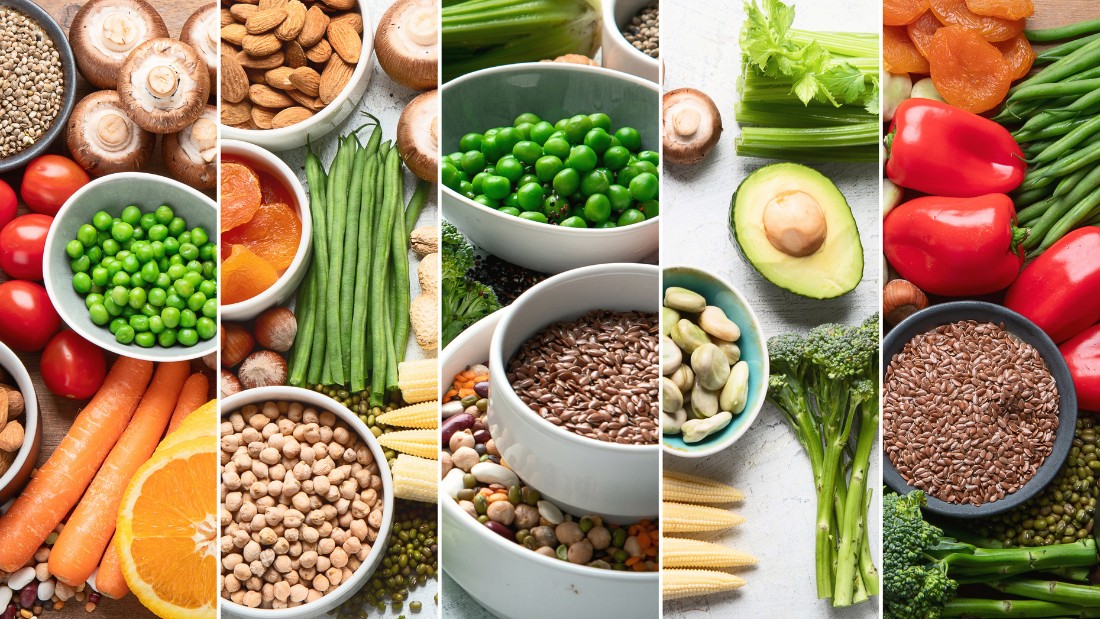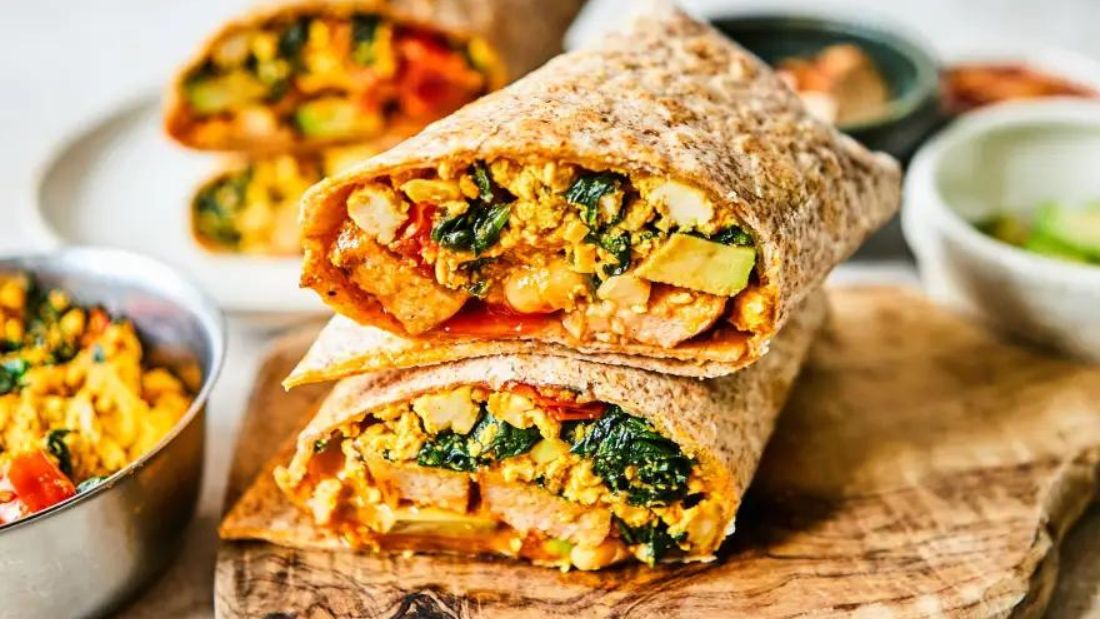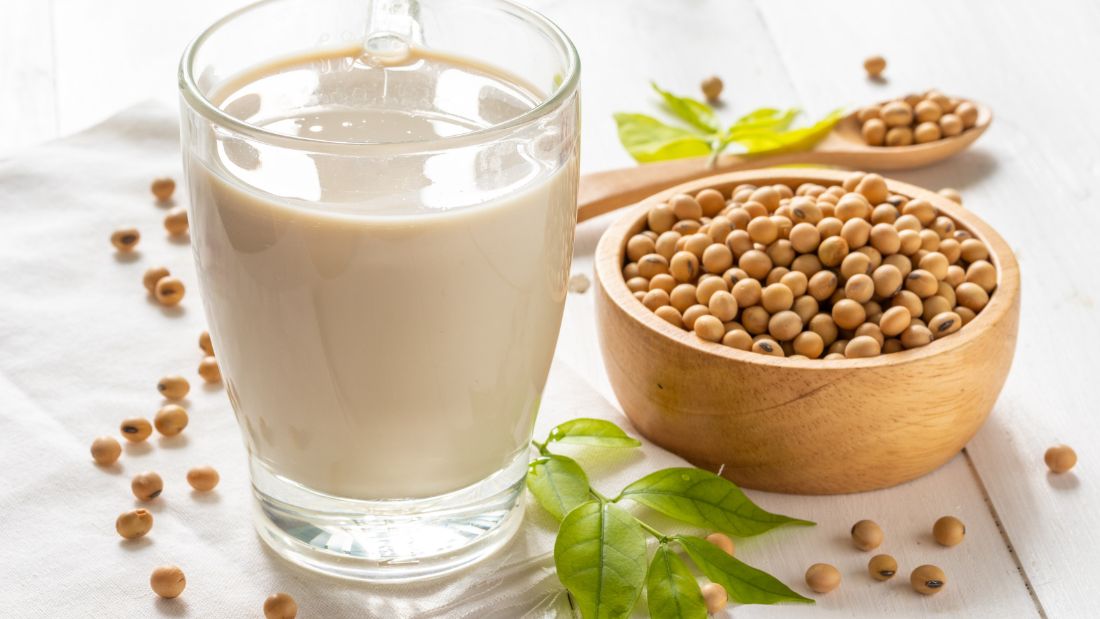Is Plant Protein as Good as Animal Protein?

You may have heard advocates of animal-based diets arguing that protein from animal products is superior to protein from plant foods.
They argue that animal protein is more bioavailable – meaning our body can absorb and use it more easily than plant protein – and that it is of a higher quality – meaning it has a better amino acid profile than plant proteins.
But is this true and what else do we need to consider when choosing our protein source?
Protein quality explained
Protein quality is a term used to describe the amino acid profile of a certain food.
Amino acids are the building blocks of protein and nine of them are essential – meaning our body can’t produce them itself so we need to get them from our food.
Different foods contain amino acids in varying quantities. Some are higher in one particular amino acid while lower in another.
Foods that contain good quantities of all nine essential amino acids are often considered a ‘high quality’ protein, but in practice this term is obsolete as you don’t have to rely on one single food to meet your requirements of every amino acid.
It’s a myth that we need to eat foods that are considered a ‘complete protein’ or combine proteins on the same plate to get all the essential amino acids.
Although it is important to get all the essential amino acids, they don’t all need to come from one food source and they don’t even need to be on the same plate!
By eating a variety of different protein-rich vegan foods throughout the day, you can tick off all nine essential amino acids.
But, if you did want to hit all nine in one sitting, there are, in fact, plant foods which contain all of them, such as soya and quinoa.
Rest assured, protein from plants can meet all of your nutritional needs.
Bioavailability explained
Bioavailability is a term used to describe how easily our body can break down, absorb and use the nutrients in a food.
Protein from animal sources does tend to be absorbed more easily than plant protein but the difference is insignificant if you are meeting your daily protein requirements.
One of the reasons is because plant foods, unlike meat, contain fibre which can slow down the speed of digestion.
But this isn’t a bad thing and certainly not a reason to choose beef over beans!
In fact, the slower absorption of plant protein may be beneficial to heart health and blood-sugar management.
Will I get the same gains if I go vegan?
If you’re worried that you won’t be able to build the same amount of muscle by going vegan, don’t be.
A 2023 study published in The Journal of Nutrition pitted animal-based protein against plant-based protein in a very thorough trial.
A group of adults had to follow a rigorous resistance exercise routine. Half of them sourced their protein predominantly from animal sources while the other half sourced their protein exclusively from plants.
Before, during and at the end of a 10-week exercise programme, various measurements were taken including muscle fibre cross-sections, lean muscle mass and muscle strength.
The researchers concluded that both diets resulted in comparable muscle growth and skeletal muscle adaptation irrespective of protein source.
So, yes, you can absolutely get the same gains in the gym if you go vegan.
Just remember, you can consume all the plant protein in the world, but you still need to lift those weights to reap the rewards!
What are the advantages of getting protein from plants?
When it comes to building muscle, there is no significant difference between animal and plant protein, but a vegan diet can actually improve your performance, recovery and stamina. There are also many other reasons why you should choose a plant-based source of protein.
Firstly, those who consume a lot of animal protein are at higher risk of death from heart disease whereas the opposite is true of those who consume high quantities of plant protein.
In fact, plant protein reduces not only the risk of cardiovascular disease but all-cause mortality too. In other words, if you swap animal protein for plant protein, you’re less likely to die from any disease!
Plant protein has also been shown to support healthy ageing whereas animal protein may actually promote age-related diseases. Diets high in animal protein also increase the risk of getting cancer.
For example, red meat consumption is linked to colorectal cancer and milk is linked with an increased risk of bladder and urinary tract cancer, and may increase the risk of breast cancer and premenopausal uterine cancer.
However, if soya becomes one of your sources of protein, you’re not only likely to reduce your risk of developing breast cancer but improve your chances of recovery if you’re unlucky enough to develop it.
Experts agree, “compared with animal protein, plant protein has more health benefits, including a reduced risk of cardiovascular disease, type 2 diabetes and certain cancers.”
Your body can get all the protein it needs from plants and the benefits of switching to a plant-based diet for the animals, the planet and overall health, far outweigh any minor differences between the two types of protein.






